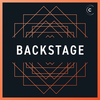Gotta give to get back
We’re on the main stage at THAT Conference with Danny Thompson. He has an amazing story and journey into tech. Thanks to our friends at Cloudflare for helping us get to THAT Conference earlier this year to enable this conversation.
Special thanks to Nick Nisi and Clark Sell for coming in clutch and getting us the audio to ship this show!





